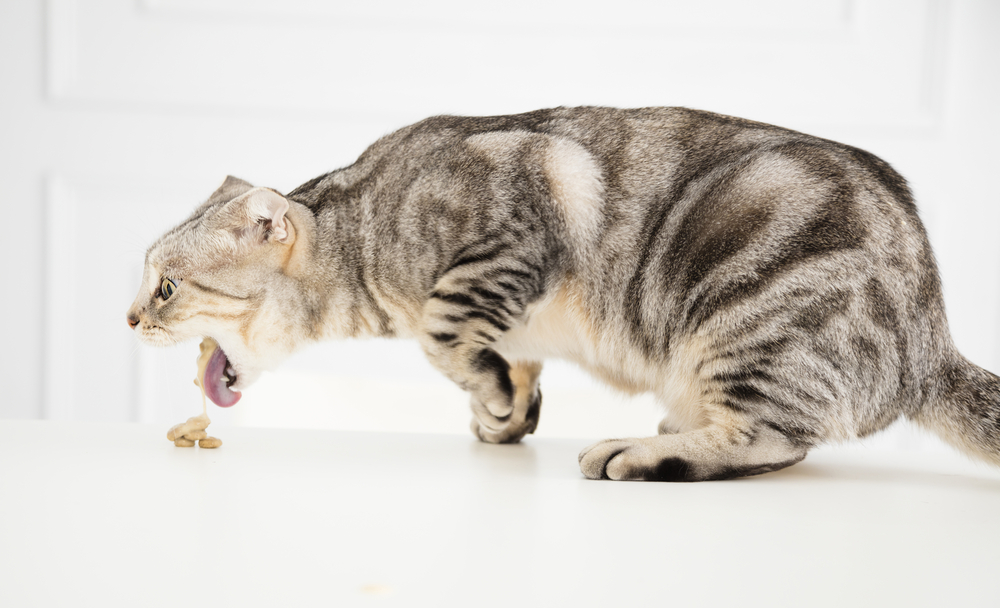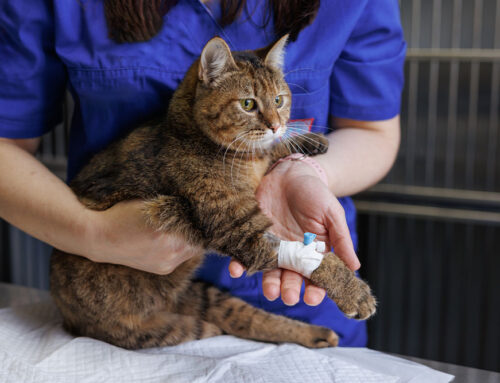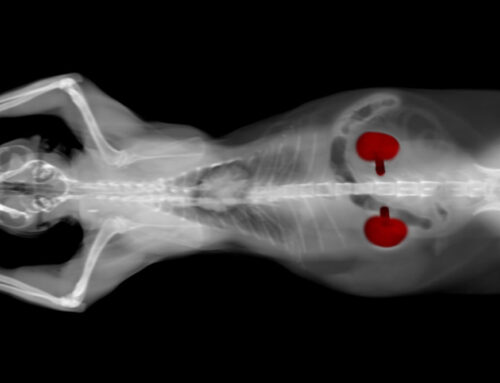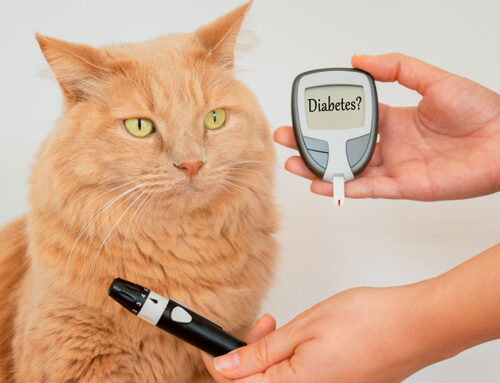You show your pet your love in many ways, through daily snuggles, adorable nicknames, and birthday celebrations they don’t understand, but the best way to show your love is to keep your pet healthy, ensuring they fully enjoy all your heartfelt gestures. Regular wellness examinations are essential for your pet’s overall health and wellbeing. However, your pet can develop health problems between wellness visits, and you may not understand these conditions’ signs. Learn how to recognize when your pet is feeling unwell by reading our Greenfield Veterinary Clinic team’s guide to disease signs that indicate your furry pal needs a veterinary examination.
#1:Your pet’s eating and drinking habits have changed
A change in your pet’s eating and drinking habits often indicate an underlying health condition. If your pet’s appetite or thirst gradually or suddenly changes, a multitude of conditions could be the cause, including:
- Dental disease — Dental disease is one of the most common conditions that affects pets, with up to 90% of them having some dental disease by age 3. As the disease progresses, your pet’s teeth-supporting structures weaken, making eating normally painful and challenging.
- Kidney disease — Kidney disease is common in aging pets, and urine concentration changes cause them to urinate more frequently and drink more water to compensate.
- Hormonal or endocrine disease — Certain metabolic and endocrine disorders can increase your pet’s appetite. Pets with hyperthyroidism, diabetes, or Cushing’s disease may become ravenous.
- Gastrointestinal (GI) issues — Any condition that causes nausea, vomiting, or diarrhea can lead to a poor appetite. A pet who is feeling unwell because of acute or chronic GI problems often stop eating.
#2: Your pet has persistent vomiting or diarrhea
While an occasional vomiting or diarrhea episode may not be cause for alarm, frequent vomiting and/or diarrhea can lead to dehydration and may indicate your pet has a serious condition that requires a veterinary examination. Vomiting and diarrhea that do not resolve after a day or two, or progressively worsen may be attributable to one of these conditions:
- GI disease (e.g., inflammatory bowel disease)
- Intestinal blockage
- Infection
- Food intolerance
#3: Your pet has difficulty breathing
Quick, labored, or noisy breathing signals a condition such as heart or lung disease, or an airway blockage. If your pet’s normal breathing pattern changes, whether their breathing is quicker or requires more effort, they need immediate veterinary care.
#4: Your pet suddenly loses weight
While your pet’s weight is likely to fluctuate slightly throughout the year, unexplained, sudden weight loss can be the first sign that a health problem is brewing. If your pet loses 10% of their normal body weight, not associated with fluid loss, this percentage decrease is considered significant, and your veterinarian should determine why this has occurred. The more rapid the weight loss, the more potentially concerning the condition. A variety of environmental factors can cause your pet to lose weight quickly, and so can the following conditions:
- Diabetes
- Digestive issues
- Cancer
- Kidney disease
- Parasitic infection
#5: Your pet is lethargic
A lethargic pet may be uninterested in playing, going for a walk, or participating in activities they usually enjoy. An extended period of lethargy or weakness, especially if your pet is also exhibiting other illness signs, requires a veterinary examination.
#6: Your pet is scooting
You may believe your cat or dog scoots along the floor to clean their hind end. However, scooting, licking, or chewing at the hind end can signal trouble, indicating that your pet needs a veterinary examination. Impacted anal glands, intestinal parasites, allergies, diarrhea, or a urinary tract infection (UTI) can cause a pet to scoot. Although cancer is the least likely reason for a pet to scoot, anal gland tumors are another possible reason your pet is exhibiting this behavior, and our Greenfield Veterinary Clinic team should examine your furry pal for these tumors.
#7: Your pet is squinting
Cloudy, red eyes, squinting, or ocular discharge can indicate your pet has an eye infection, injury, or conditions such as conjunctivitis, glaucoma, uveitis, or dry eye. Untreated eye inflammation can cause scarring, pain, and vision loss, so your pet should receive prompt veterinary care.
#8: Your pet is limping

A slight limp may improve on its own with rest. However, if your pet’s limp does not resolve after a few days’ rest, they should have a veterinary examination. Degenerative joint disease (e.g. arthritis) is a common condition, causing pets pain and mobility issues that become progressively worse over time if left untreated.
Show your pet some love by keeping an eye out for any changes that indicate they have a health problem. If your pet is exhibiting any illness signs, schedule an appointment with our Greenfield Veterinary Care team.







Leave A Comment